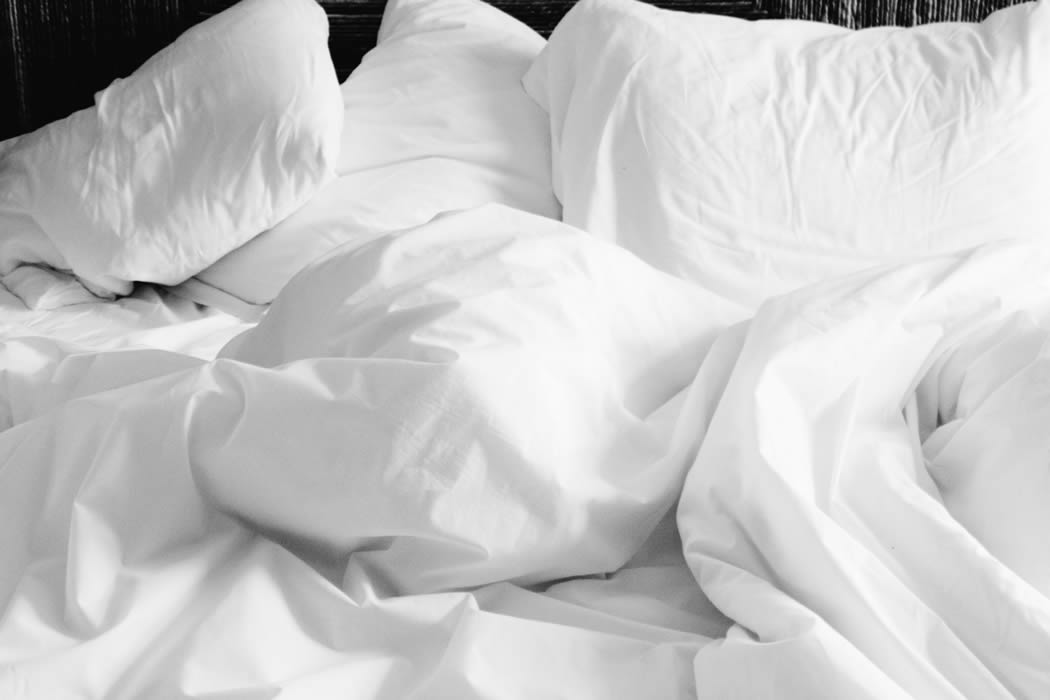How to Improve Your Sleep Hygiene
Many people neglect their sleep hygiene, but they may finally start taking it seriously if they knew how important it is. Sleep deprivation is a dangerous hole to fall down, and once you do, it’s hard to get out. Even just a few nights of missing out on a few hours of your sleep can lead you to experience brain fog and mood swings. Long-term you may experience risks of obesity, diabetes, and even heart diseases. That’s why you shouldn’t be taking your sleep hygiene lightly.
Your sleep hygiene is based off of two standards. First, how clean are your sleeping habits, meaning how often are you actually taking care of cleaning your sheets and bed? Secondly, how regular are your sleeping habits, meaning are you keeping up with both the needed quantity and quality of your rest? Each of these factors relies on the other, so it’s important that you consider both. Don’t know how? We’ll walk you through each step to get you on your way to more nights of better sleep.
A Clean Sleep
Taking all of your sheets and pillowcases off your bed just to wash them and have to put them right back on can be a big hassle. Once you start considering how many gallons of sweat and dead skin cells you shed onto them, you may be more motivated. Ideally, you should be washing your sheets on a regular basis, and don’t forget about your pillowcases as they need attention too from all the oils and dead skin cells from your hair and face, especially for women.
Cleaning up your sleep goes deeper than your sheets. Take care to notice your mattress’ health as well. Ideally, you should be rotating it every 3-6 months and replacing it every 7-10 years. To preserve the lifespan of your mattress and keep it even more clean, you can vacuum its surface to pull out as much of the dust mites, dead skin cells, and other bacteria that lie beneath the surface.
A Quality Night of Rest
Getting the right amount of sleep isn’t terrible difficult to achieve. Really it’s as simple as subtracting seven to nine hours from the time you need to wake up and becoming more strict about getting yourself to bed at the time. What’s not so easy is working on the quality of your sleep. Here are a few ways you can work on improving the quality of your sleep from a holistic point of view.
Start a wind-down routine
Implementing a wind-down routine into your evenings will help you fall asleep easier and stay asleep longer. A wind-down routine is simply what you do to wind down before bedtime. While it’s personal to everyone, there are a few common tricks that help people relax.
Start with calming your mind. This will happen when you turn away from technology, lower the lights, and engage in activities that help you find peace of mind, such as meditating or reading a book. Next, learn how best to calm your body. You may achieve this by taking a warm bath or practicing a few stretches inspired by yoga. With both your body and mind prepared, you’ll be ready for a great night of sleep.
Pick the best sleeping structure
Different types of mattresses are designed with different types of sleepers in mind. This includes seniors, people who experience pain, people who sleep hot, side sleepers, couples, and more. What works best for one person may be a disaster for someone else. Figure out your sleeping preferences and then dig into reviews to find the type of mattress that would work best for you. Once you’re square on your bed, dress it in sheets that you can comfortably curl up in. Avoid any material that feels thick as this will make you sweat and steal your sleep quality.
Trying natural remedies
You may be inclined to try to repair your sleeping habits with prescription drugs, but before you go to those lengths, you should give natural remedies a shot. Start by taking a warm bath. Raising your body’s temperature slightly in a bath will make it easy to experience a drop in core body temperature right when you get in bed, which helps you fall asleep and reach deep sleep.
Essential oils have also proven to be effective at helping improve your sleep. Ones like lavender, cedarwood, and chamomile are best at calming you before bed. These can be used topically, through a diffuser, or incorporated with other remedies like your warm bath or a cup of warm tea.
Staying Consistent
The most important thing you should be aware of once you start to repair your sleep hygiene is the value in keeping up your routine. Humans are creatures of habit, and once we create a routine we do best by sticking to it. Developing a regular schedule for maintaining your sleep hygiene will help your body adjust and adapt more quickly, helping you have a great night of sleep each night.
Author’s bio: Laurie Larsonis a freelance writer who
writes on health and lifestyle topics.








